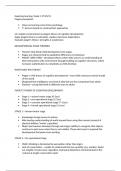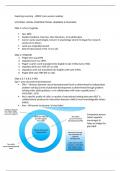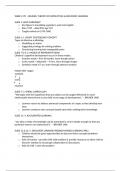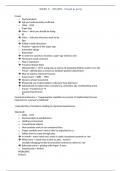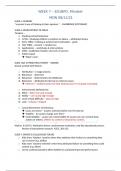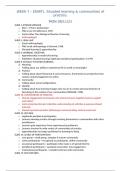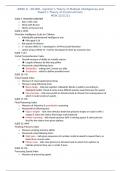Package deal
Lecture notes - Exploring Learning - ED1BTL
Exploring learning in detail, looking at different theories and how they impact education. Focusing further on: Gardner's theory of multiple intelligences, Papert's theory of constructivism, Weiner, attribution theory, Mezirow, Dewey, Maslow's hierarchy of needs, Fredrickson, Freud, Piaget, Bowlby,...
[Show more]
